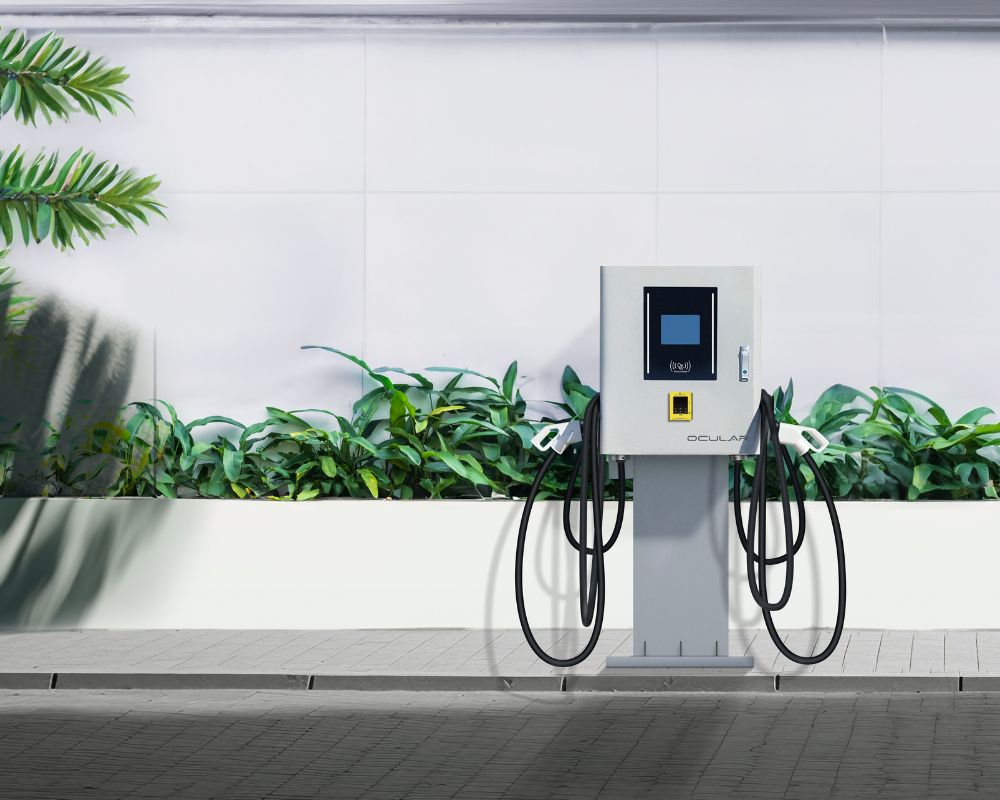How fast can a DC charger charge my EV?

Electric vehicle (EV) charging has come a long way in recent years, and the introduction of DC fast charging technology has made it possible to charge an EV much faster than before. But how fast can a DC charger actually charge an EV, and what factors influence the charging speed?
Firstly, it’s important to understand the difference between AC and DC charging. AC charging, which is the most common type of charging available at homes and public charging stations, uses an alternating current to charge the EV’s battery. DC charging, on the other hand, uses a direct current to charge the battery, which allows for much faster charging speeds.
When it comes to DC charging, there are several factors that can affect the charging speed, including:
- The charging capacity of the EV: The maximum charging speed that an EV can handle is determined by the vehicle’s battery size and charging capacity. Most EVs have a maximum charging capacity of around 50 kW, but some newer models can handle much higher charging speeds of up to 350 kW.
- The charging station’s power output: The power output of the charging station is another key factor that affects the charging speed. DC fast charging stations typically have power outputs ranging from 50 kW to 350 kW, and the higher the power output, the faster the charging speed.
- The state of charge of the battery: The charging speed may also vary depending on the state of charge of the battery. Generally, EVs charge faster when the battery is at a low state of charge and slower when the battery is nearly full.
- The ambient temperature: Temperature can also have an impact on the charging speed, as extreme temperatures can cause the battery to heat up or cool down, which can affect the charging speed.
So, how fast can a DC charger actually charge an EV? Well, it depends on the factors mentioned above. For example, a 50 kW DC fast charging station can typically charge an EV to 80% capacity in around 30-45 minutes. However, newer charging stations with higher power outputs can charge an EV much faster.
For instance, a 350 kW DC fast charging station can provide a full charge to an EV in as little as 20 minutes, which is a significant improvement over the 4-8 hours it can take to fully charge an EV using an AC charging station.
It’s important to note that while DC fast charging can provide much faster charging speeds, it may also have an impact on the battery’s lifespan. Rapid charging generates heat, which can cause the battery to degrade over time, leading to a shorter battery life.
To mitigate this, EV manufacturers often recommend limiting the frequency of rapid charging and avoiding charging the battery to 100% capacity, which can also put stress on the battery and reduce its lifespan.
In conclusion, EV DC fast charging technology has revolutionized the way we charge our EVs, allowing for much faster charging speeds than before. The actual charging speed depends on several factors, including the EV’s charging capacity, the charging station’s power output, the state of charge of the battery, and the ambient temperature.
While DC fast charging can provide a convenient and fast charging option for EV drivers, it’s important to be aware of its potential impact on the battery’s lifespan and to follow the manufacturer’s recommendations for optimal battery health.
For businesses or property managers looking to install fast, reliable, and future-proof charging infrastructure, our Commercial EV Charging Station solutions are designed to meet your needs.
Have any other questions? Contact us below:
Phone: 0800 990 032
Email: sales@evse.nz


